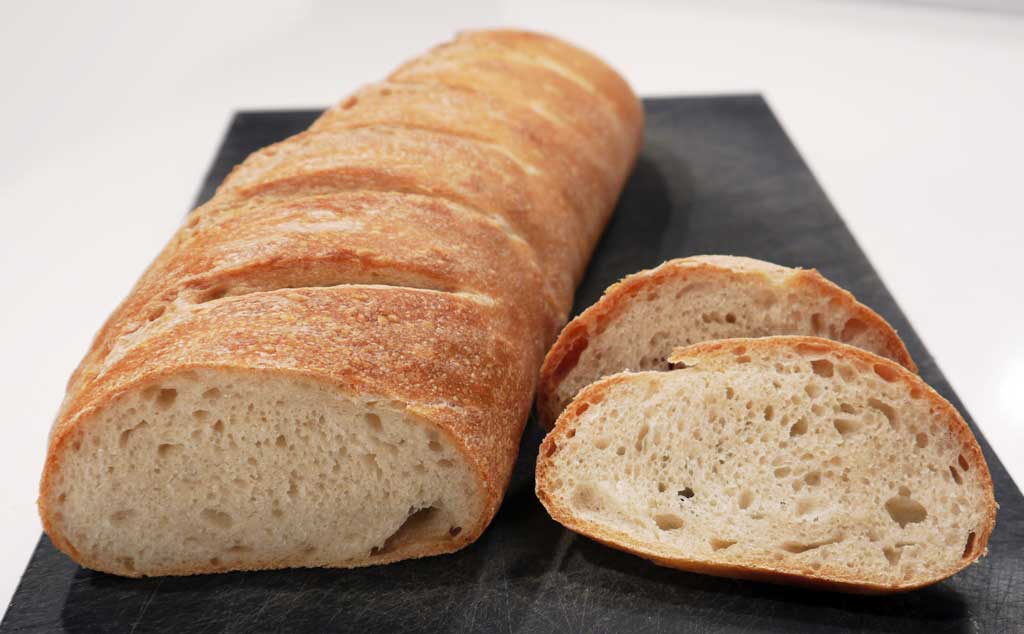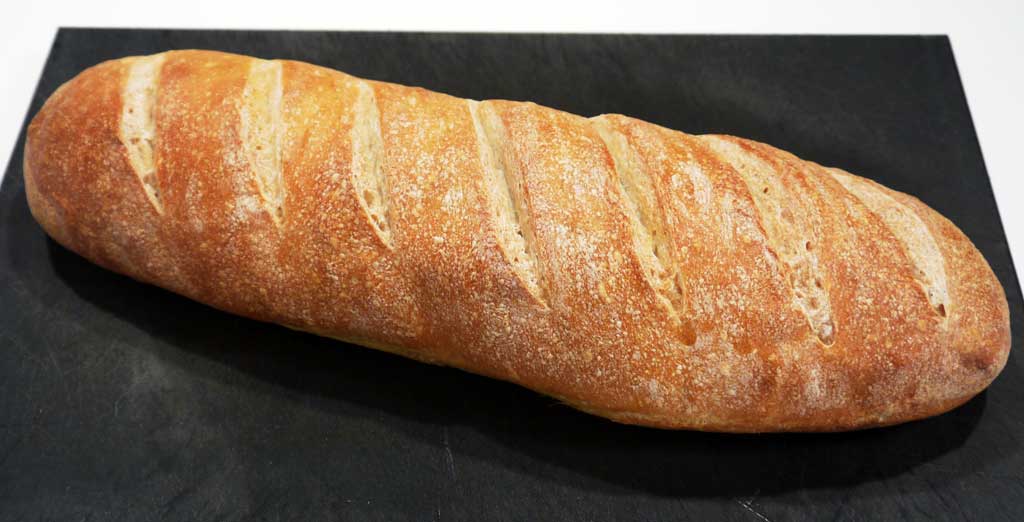French Bread - Slow fermentation with a wet pre-ferment (poolish)

Ingredients
- 2 g fresh yeast (the size of a pea) or 1/4 tsp instant yeast
- 3 dl (1 1/3 cup) water
- 1 tsp salt
- 500 g (18 oz) flour
Directions
Weigh all your flour and put it into a bowl.
Pre ferment (12 hours prior to baking.)
Dissolve the yeast in the bowl of water.
Add 3 dl (1 1/3 cup) of the total flour and mix it to the consistency of a "pancake" batter.
Tip! Add the salt into the remaining flour now, so you do not forget it in 12 hours :-)
Let it ferment for 12 hours until you have a thin bubbly pre-ferment.
The dough
Mix the last flour and the salt into the pre-ferment.
Kneading
Knead for approx. 10 minutes. (I use a machine.)
Fermentation
Let it raise for approx. 4 hours until doubled in size.
Shaping
Shape the bread into a ball by pushing it into itself from the bottom. Continue until the surface is tight.
If it is difficult to work with, then let it rest for 10 minutes.
Elongate the bread by folding it in half, and loosely clamp it together. Repeat 3-5 times and finish by squeezing it hard together where there is a fold.
Roll the bread into a thin log, until it is as long as the roasting pan is wide. Approximately 30-40 cm (12-16 inches).
Use as little flour as possible. Just enough that it does not stick to the table or your fingers.
Put it on a piece of baking paper.
Proofing / second fermentation
Let it rise approximately 2 hours more. Again until doubled in size.
Brushing
Brush the entire visible surface with a little milk.
Scoring
Cut the bread with a sharp knife or a bread knife. I usually use a bread knife.
Baking
Bake for about 35 minutes at 180°C (355°F) convection, or 200°C (390°F) normal. Until the bread is well browned.
Cooling
Let it cool for at least 20 minutes before eating ...! :-)

Notes
The difference between this bread and my "classic" french bread recipe is that all the taste comes from only flour and salt. The bread has a much better taste and a slightly more chewy crumb. It is very similar to a mild sourdough.
This is why there is such a long fermentation time. This is what creates the taste. Also, there is only a little yeast in the recipe. Such a small amount of yeast does not work well with a relatively dry dough in this recipe. Therefore we need to give it a a kick first, with a wet pre ferment.
If 4 hours is too long time when you ferment it, you can add 6 g or 12 g fresh, or 1 or 2 tsp instant, yeast to the sponge just before the final flour is mixed in and kneaded. Then you can ferment it in only an hour or two with good results.
The bread is good as an accompaniment to food. Not so good for making toast with :-S
